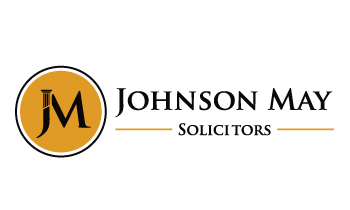“Never take your eyes off the cash flow because it’s the lifeblood of business”
Sir Richard Branson
Getting paid on time is key to the success of any business, whether small, medium, or large!
As Sir Richard Branson famously said, cash flow is the lifeblood of business!
That said, it can be incredibly frustrating for business owners to keep cash flowing if customers do not pay on time.
However, there are steps that you can implement into your business to get paid.
Below are 5 top tips to help you get paid quicker and avoid having an unpaid invoice.
Tip 1
Know your customer
Part of the problem is that often businesses do not find out that their customers are having financial difficulties until they fail to pay an invoice. So why not put a stop to just taking on any customer?
Do some due diligence at the beginning of your business relationships. Make getting to know your customers part of your business process.
If your business relationship with a customer has already begun, there is nothing to stop you from starting to get to know your customer sooner rather than later!
Here are some steps that you can take: –
Speak to your customer.
Ask them how their business is going. Show an interest in what they are doing. For example, is your customer doing well in business? Are they recruiting and expanding? Or is your customer struggling financially, downsizing and taking uncalculated risks?
Who is your contact within your customer’s business?
Can they make decisions on behalf of the business? If the person is not a decision making such as a named director, the business may delay paying or even worse, refuse to pay you.
What type of business is your customer?
For example, a sole trader, a charity, or a limited company?
If a limited company check Companies House and have a good look ground.
Has your customer filed its accounts on time? Are there any red flags in relation to your customer’s solvency?
Consider getting a credit report. It will provide a credit score for your customer and some advanced reports can also predict insolvency 12 months in advance.
Tip 2
Watertight contract and terms
When was the last time that you reviewed your business contract/terms and conditions?
As a business progresses, usually its processes evolve over time too. It is therefore very important to check that your business terms reflect your current practises because if they do not, they may not properly protect you if you need to rely on them in future.
Tip 3
Get upfront payments
If possible, try to obtain payments up front for your services.
If upfront payments are not viable for your business, keep a close eye on the works being undertaken and, if possible, take steps to stop working sooner rather than later in order to manage the amount of unpaid invoices that accrue.
If it is not possible to stop work on short notice, consider taking larger upfront payments at regular intervals.
Tip 4
Invoice clearly and properly
When it’s time for you to prepare your invoice, you must make sure that it has all of the legal requirements for a valid invoice.
You can check the government website for a list here.
In summary, each invoice must include: –
- a unique identification number.
- your company name, address and contact information.
- the company name and address of the customer you’re invoicing.
- a clear description of what you’re charging for.
- the date the goods or service were provided (supply date).
- the date of the invoice.
- the amount(s) being charged.
- VAT amount if applicable.
- the total amount owed.
In addition, we highly recommend that your invoice specifically refers to your business terms and conditions along with your payment terms.
You may wish to notify your customers of any interest that will accrue if an invoice is late.
You can add information to your invoice letting your customers know how they can pay you promptly by adding your bank account information.
You may also wish to include an instant online payment method such as GoCardless and/or Stripe.
Tip 5
Prompt and remind
Incorporate into your invoicing process a prompt email to respectfully remind your customers when your invoice is due for payment. For example within the next 14 days or 7 days. Your email may result in your customer paying your invoice early, or will it bring your invoice to the top of your customer’s To-Do-List again just in case it has been missed or overlooked?
If your invoice is not paid by the due date, follow up with a reminder e-mail. Your reminder email may result in payment of your invoice or it will bring your invoice back to the top of your customer’s To-Do-List.
Tip 6
If your invoice still remains unpaid, call your customer and have a chat. You can then try to find out whether your invoice has been overlooked, is your customer choosing to pay other businesses before yours or is there a real cause for concern.
Tip 7
Get help
Speak to a professional to help you take legal action
You can work with a firm of solicitors to handle the debt recovery process for you.
At Johnson May solicitors, we offer low fixed fees to help our clients with debt recovery. We are based in Beckenham and London City but we service clients throughout England.
Our debt recovery process follows an approach that champions communication to recover payments swiftly for our clients.
